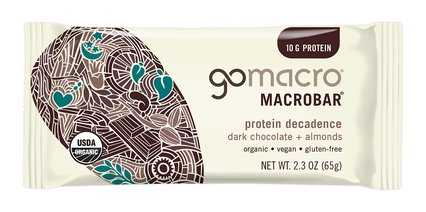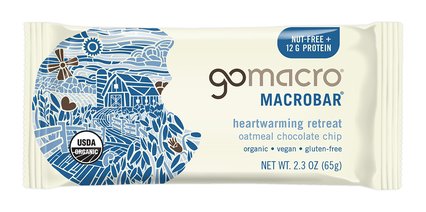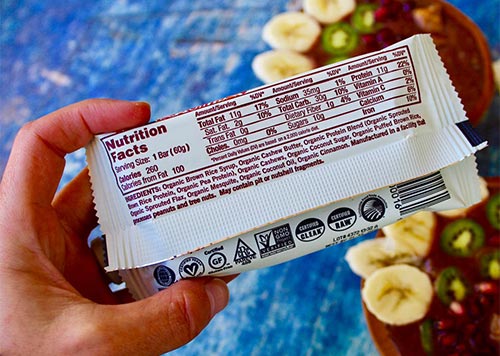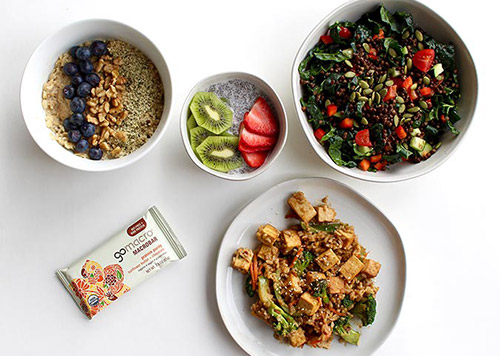Reducing Anxiety with Nutrition
When you’re under a lot of pressure, it’s easy to allow making healthy meals to fall to the bottom of the priority list. Stress can often make sugary comfort foods more tempting, and anxiety can sometimes make it challenging to eat at all. However, a well-balanced diet, rich in specific nutrients, can help support your body’s ability to cope with stress. It may even contribute to reducing feelings of anxiety! While a nutritious diet alone isn't a cure-all, it plays a crucial role in maintaining overall well-being and mental clarity. Here’s a look at how certain foods can support your mental health and contribute to reducing anxiety.

Foods That Help Reduce Anxiety
In general, eating a whole-foods-focused diet, staying hydrated, and limiting highly processed foods can help support all aspects of your health – including mental health. However, incorporating specific nutrient-rich foods into your diet can be a powerful way to support mental well-being. These foods provide essential nutrients that can help stabilize mood, boost energy levels, and promote overall brain health:
- Protein at Breakfast: Starting your day with a protein-rich meal can help stabilize blood sugar levels, which is important for managing stress and anxiety. In fact, protein supports the production of neurotransmitters that regulate mood and energy. If you’re in a time crunch, MacroBars® are a delicious and convenient way to start the day with protein and essential nutrients.
- Almonds: Packed with brain-boosting vitamins like magnesium, healthy fats, and vitamin E, almonds can help reduce oxidative stress, which is linked to anxiety. They’re also a rich source of magnesium, which can help level out the stress hormone cortisol.
- Green Tea: Rich in L-theanine, an amino acid that promotes relaxation without causing drowsiness, green tea can help support a calm and focused mind. It’s a great replacement for other high-caffeine beverages that can exacerbate anxious feelings.
- Dark Chocolate: In moderation, dark chocolate (70% cacao or higher) is a great source of antioxidants, especially flavonoids, that can actually help boost serotonin levels -- which is key for mood regulation. It also contains magnesium, making it a great treat to help you wind down after a long day.
- Blueberries: These little berries are full of antioxidants and vitamin C, which can help reduce oxidative stress and inflammation, both of which are linked to anxiety. Some small studies have even shown improvement in participants’ moods after blueberry consumption.
- Beans: Studies suggest that people with the highest fiber intake tend to have a lower incidence of anxiety – and beans are a great way to pack in fiber! Paired with their protein content, beans can also help regulate blood sugar levels, which can prevent mood swings and help maintain a steady energy level throughout the day.
- Leafy Greens: Diets low in magnesium have been shown to increase anxious behaviors. Vegetables like spinach and kale are rich in magnesium, as well as folate, which is essential for neurotransmitter function and has been linked to a lower risk of depression.
- Avocados: This nutrient-dense fruit is high in healthy fats, which are essential for brain health. Avocados also contain B vitamins that are crucial for the production of stress-relieving neurotransmitters.
Foods to Limit or Avoid
While some foods can help support mental health, others may contribute to anxiety -- or even make it worse! It’s important to be mindful of how certain foods affect your mood and energy levels. Take a look at some common culprits:
- Caffeine: While a little caffeine can be energizing, too much can lead to jitters and intensify anxiety. It’s important to monitor your intake and avoid overconsumption, especially if you’re prone to anxiety. If you enjoy the morning coffee ritual, try a lower-caffeine option like tea.
- Refined Sugars: High sugar intake can cause blood sugar spikes and crashes, leading to mood swings and increased anxiety. Though more research is needed, eating added sugar may also increase the risks of mood disorders. Opt for natural sources of sweetness, like fruit, to satisfy your sweet tooth without the negative effects.
- Highly Processed Foods: Consumption of ultra-processed foods is correlated with a higher incidence of anxiety and depressive symptoms. These foods are often high in unhealthy fats, sugars, and artificial additives, which can negatively impact your mood and energy levels.
- Alcohol: While it may seem like alcohol helps you relax, it can actually disrupt sleep patterns, cause a mild (or worse) withdrawal effect, deplete minerals, and cause dehydration. These can all exacerbate anxiety (sometimes informally called “hangxiety”) in the short term and in the long run.
Adding nutrient-rich foods to your diet is a great way to support brain health and overall well-being. While these foods are not a replacement for talking to a doctor or mental health professional, they can complement your efforts to manage stress and anxiety. Of course, we always recommend consulting with a professional before making any big changes! By making mindful choices about what you eat, you can take a proactive step toward better mental health and a more balanced life.









